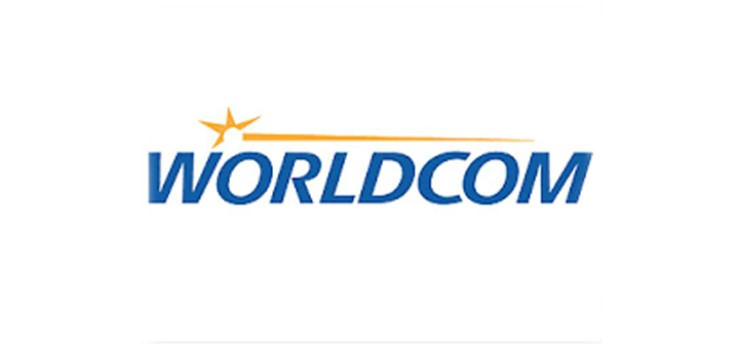As arcane as they now sound, there was a time when long-distance carriers ruled the telecommunications industry. In the late 1990’s and early 2000’s, the largest telecoms company was WorldCom, a long-distance and internet provider. WorldCom had grown throughout the 90’s through a series of poorly-managed acquisitions and mergers into a corporation of competing divisions, redundant services and products, and multiple billing systems—a chaotic environment perfect for fraud and corruption.
The First Whistleblower
Kim Emigh was a budget analyst at WorldCom. Soon after he was hired in 1996, Emigh witnessed unscrupulous business practices, such as close personal relationships between company executives and the vendors to whom they awarded contracts and contractors who were paid exorbitant rates. When Emigh questioned these and other issues, management flatly told him to butt out. Though not officially reprimanded, Emigh’s boss threatened him with termination.
Emigh requested a transfer and, over the next several years, was promoted multiple times—all the way to management—always with glowing reviews. By 2000, business was slowing down for WorldCom, but the cost-cutting measures some managers requested were frequently improper. Emigh pushed back against bad business directives, such as not paying vendors timely. But in late 2000, he and others were asked to do something Emigh believed to be outright illegal—misclassify costs in the accounting books.
The gist of the plot is this: by shifting labor expenses from one category to another, WorldCom could artificially boost its bottom line to show a profit, rather than a loss. In the kindest possible terms, that’s misleading to investors; in actuality, it’s fraud. Emigh balked at carrying out the order and blew the whistle to the chief operating officer. The order was halted before it was carried out but, soon after, Emigh was fired.
The Auditors Step In
But this isn’t the scandal that brought down WorldCom. In fact, no one outside of his division had heard of Kim Emigh until Cynthia Cooper, head of WorldCom’s internal audit department, caught wind of Emigh’s allegations and decided to investigate.
Emigh’s whistleblowing had put a stop to one accounting scheme, but another took its place. With sales plummeting, some WorldCom execs devised another idea for cooking the books. Under the made-up term “prepaid capacity,” company accountants were instructed to book certain costs, such as the leases of network lines, as capital expenses, instead of as operating expenses. Capital expenses are for assets and can be spread out over a period of years, while operating expenses must be recognized in full when they occur. Similar to the previously concocted plan, this change resulted in fiscal reports that showed a healthy, profitable company; in truth, WorldCom was careening towards bankruptcy.
When Cooper and her auditing team looked into Emigh’s claims, they stumbled over $1.4 billion in capital expense entries for “prepaid capacity.” Cooper had never heard the term before; neither had any of the accountants she asked for an explanation. Furthermore, there was nothing to back up those entries—no invoices, receipts, or supporting documentation of any kind.
All told, auditors uncovered $3.9 billion in operating expenses that had been transferred to capital expense accounts. When word of the investigation reached the executives who had ordered the deceitful entries, Cooper was asked to drop it. She didn’t. Instead, Cooper went to the chair of WorldCom’s board’s audit committee and blew the whistle on the company’s fraudulent accounting.
Consequences
Following Cooper’s report, the Securities and Exchange Commission (SEC) launched its own investigation into WorldCom’s accounting and found that the company had overstated assets by a staggering $11 billion. At the time, it was the largest corporate accounting fraud case in US history. The SEC charged WorldCom with civil fraud and reached a $2.25 billion settlement. Several executives and the CEO were indicted on charges of securities fraud, conspiracy, and filing false documents with regulators. WorldCom filed for Chapter 11 bankruptcy protection and, in 2006, what remained of the once-mighty corporation was purchased by Verizon.
In the aftermath of WorldCom, Enron, and other corporate accounting scandals, Congress passed the Sarbanes-Oxley Act (SOX), a corporate governance law which, among other things, holds top executives personally liable for the accuracy of a company’s financial statements. SOX covers a range of elements, such as maintaining auditor independence, conflicts of interest, financial disclosures, responsibilities of a corporation’s board, and penalties for white-collar crime. The law also mandates that companies provide a means for employees to anonymously report questionable accounting or other dubious acts.
In 2002, Time magazine named Cynthia Cooper—along with Sherron Watkins of Enron and Coleen Rowley of the FBI—one of their Persons of the Year, collectively called “The Whistleblowers.” As someone whose leadership and dedication to ethics helped change the way American corporations do business, Cynthia Cooper is an exemplar of effective whistleblowing.
If you witness wrongdoing in the workplace, you can file an anonymous report via the university’s Integrity Line.
